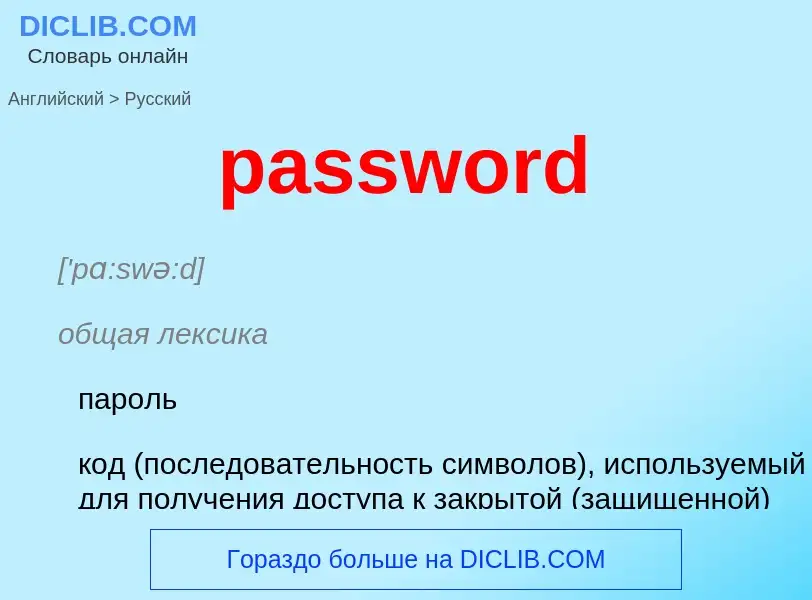Μετάφραση και ανάλυση λέξεων από την τεχνητή νοημοσύνη ChatGPT
Σε αυτήν τη σελίδα μπορείτε να λάβετε μια λεπτομερή ανάλυση μιας λέξης ή μιας φράσης, η οποία δημιουργήθηκε χρησιμοποιώντας το ChatGPT, την καλύτερη τεχνολογία τεχνητής νοημοσύνης μέχρι σήμερα:
- πώς χρησιμοποιείται η λέξη
- συχνότητα χρήσης
- χρησιμοποιείται πιο συχνά στον προφορικό ή γραπτό λόγο
- επιλογές μετάφρασης λέξεων
- παραδείγματα χρήσης (πολλές φράσεις με μετάφραση)
- ετυμολογία
password - translation to ρωσικά
['pɑ:swə:d]
общая лексика
пароль
код (последовательность символов), используемый для получения доступа к закрытой (защищенной) системе
существительное
военное дело
пароль
пропуск
Ορισμός
Βικιπαίδεια

A password, sometimes called a passcode (for example in Apple devices), is secret data, typically a string of characters, usually used to confirm a user's identity. Traditionally, passwords were expected to be memorized, but the large number of password-protected services that a typical individual accesses can make memorization of unique passwords for each service impractical. Using the terminology of the NIST Digital Identity Guidelines, the secret is held by a party called the claimant while the party verifying the identity of the claimant is called the verifier. When the claimant successfully demonstrates knowledge of the password to the verifier through an established authentication protocol, the verifier is able to infer the claimant's identity.
In general, a password is an arbitrary string of characters including letters, digits, or other symbols. If the permissible characters are constrained to be numeric, the corresponding secret is sometimes called a personal identification number (PIN).
Despite its name, a password does not need to be an actual word; indeed, a non-word (in the dictionary sense) may be harder to guess, which is a desirable property of passwords. A memorized secret consisting of a sequence of words or other text separated by spaces is sometimes called a passphrase. A passphrase is similar to a password in usage, but the former is generally longer for added security.


